Respawn on creating authentic representation in Apex Legends: "the constant evolution of the game actually helps us create meaningful characters"
In conversation with Apex Legends' narrative lead Ashley Reed and Catalyst voice actor Meli Grant
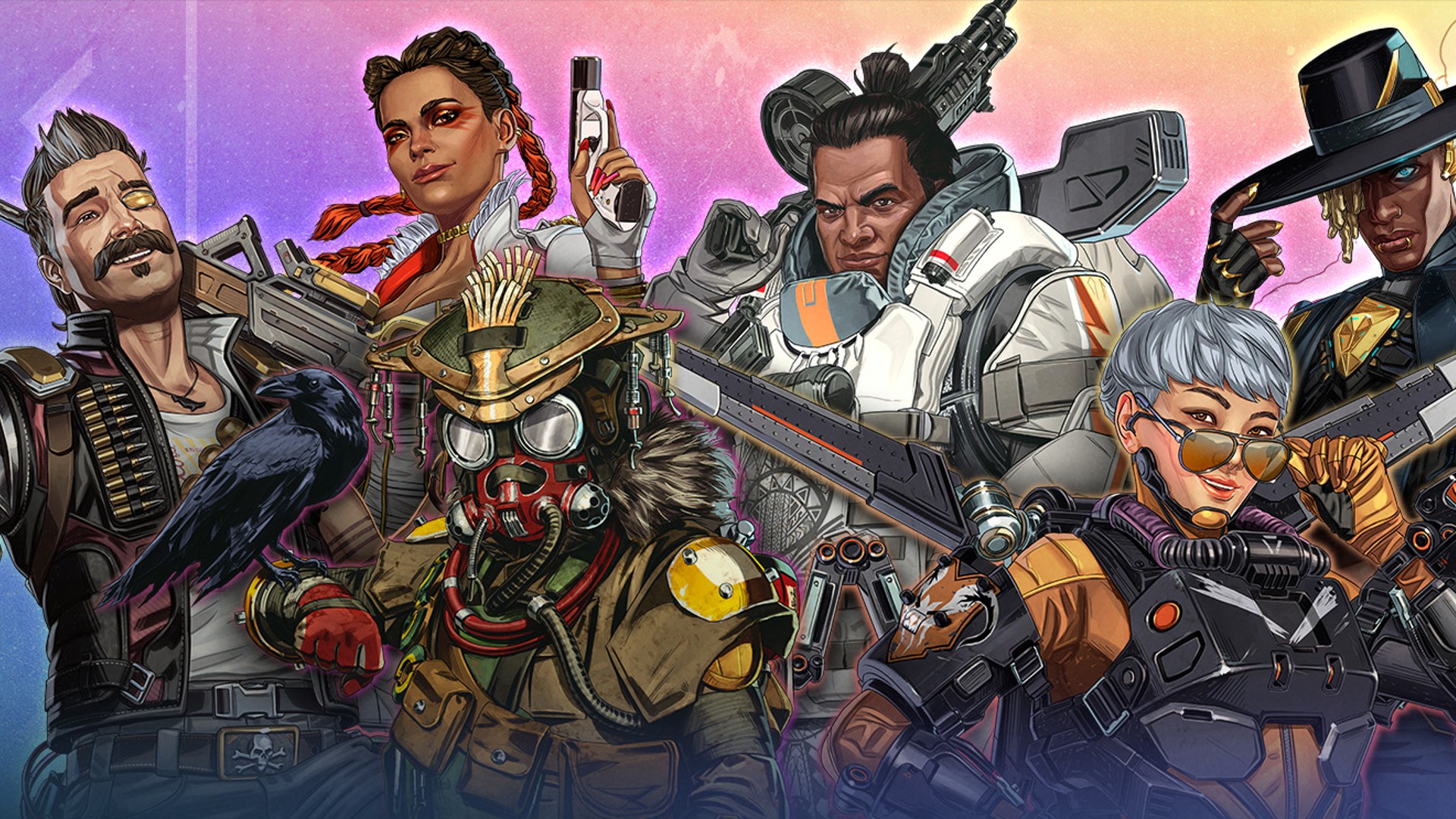
It's no exaggeration to say that Apex Legends continues to set the standard with LGBTQIA+ representation in multiplayer games. With 24 playable legends in its diverse roster four years on from release in 2019, characters from the LGBTQIA+ community have featured in Apex from the start – with Gibraltar being the first gay legend, who was joined at launch by non-binary character, Bloodhound.
As a battle royale that is continually evolving with new seasons and events, more characters have since joined the lineup, such as bisexual badass Loba, and Catalyst, who's an out and proud transgender woman. Respawn clearly makes inclusivity a core part of its writing process, and while the nature of a live service game like Apex Legends presents its own challenges when it comes to developing stories and representation that feels authentic, it also gives the team at Respawn the opportunity to learn and try out new ideas.
Narrative lead Ashley Reed explains: "In a way, the constant evolution of the game actually helps us create meaningful characters because it gives us time to try new ideas. With what we call a 'boxed product' (a finished game you can buy off a shelf), you work for years on a contained thing and do your best to get everything you want in it, but some ideas don't make the final cut and others come in too late. With a live service game, we constantly have opportunities to learn and evolve the game."
"At the same time, that format proves to be our biggest challenge: How do you tell stories in a Battle Royale game, where the player's main focus is winning the match? And how do you craft a narrative for a game that never ends? (Not that that's a complaint – here's to twenty years of Apex!) It can be daunting, but it's an opportunity to get creative with how you tell stories when the methods you're used to aren't available. Our dynamic dialogue was born from those limitations, as were the Chronicles, and both continue to change and evolve. It's a puzzle the way all game development is fundamentally a puzzle, and it's an interesting one to work on every day."
Authenticity
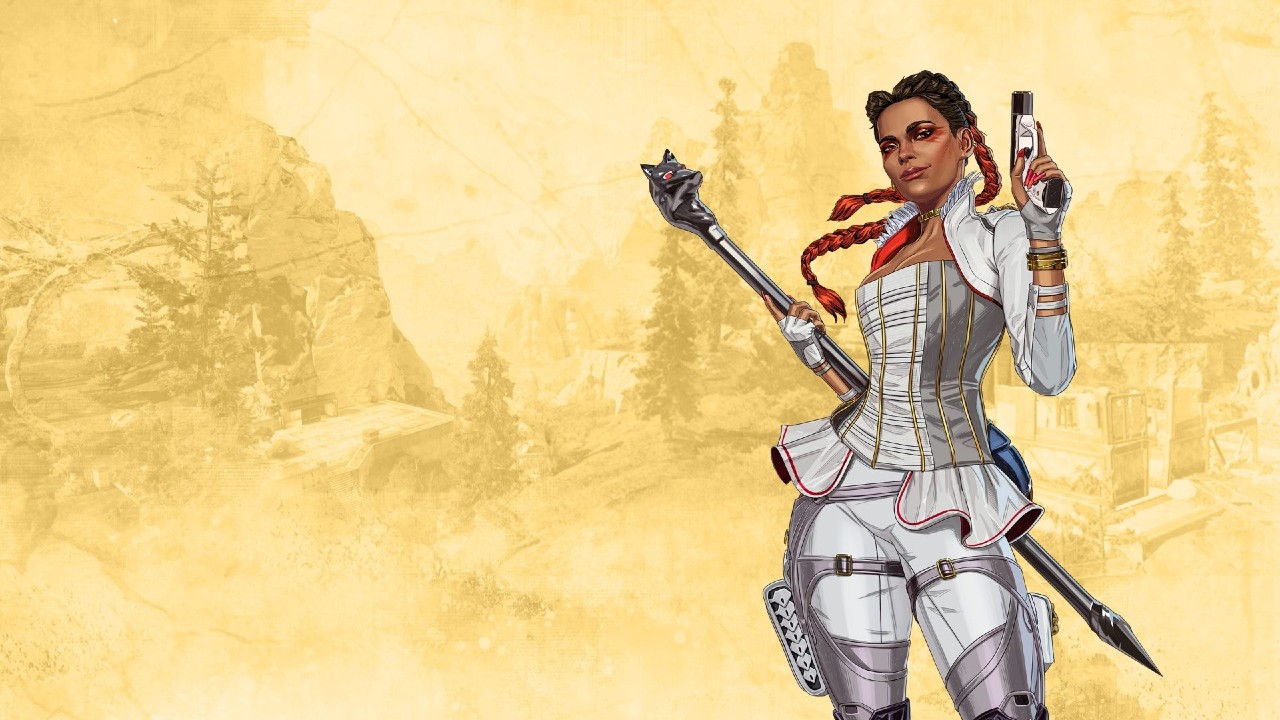
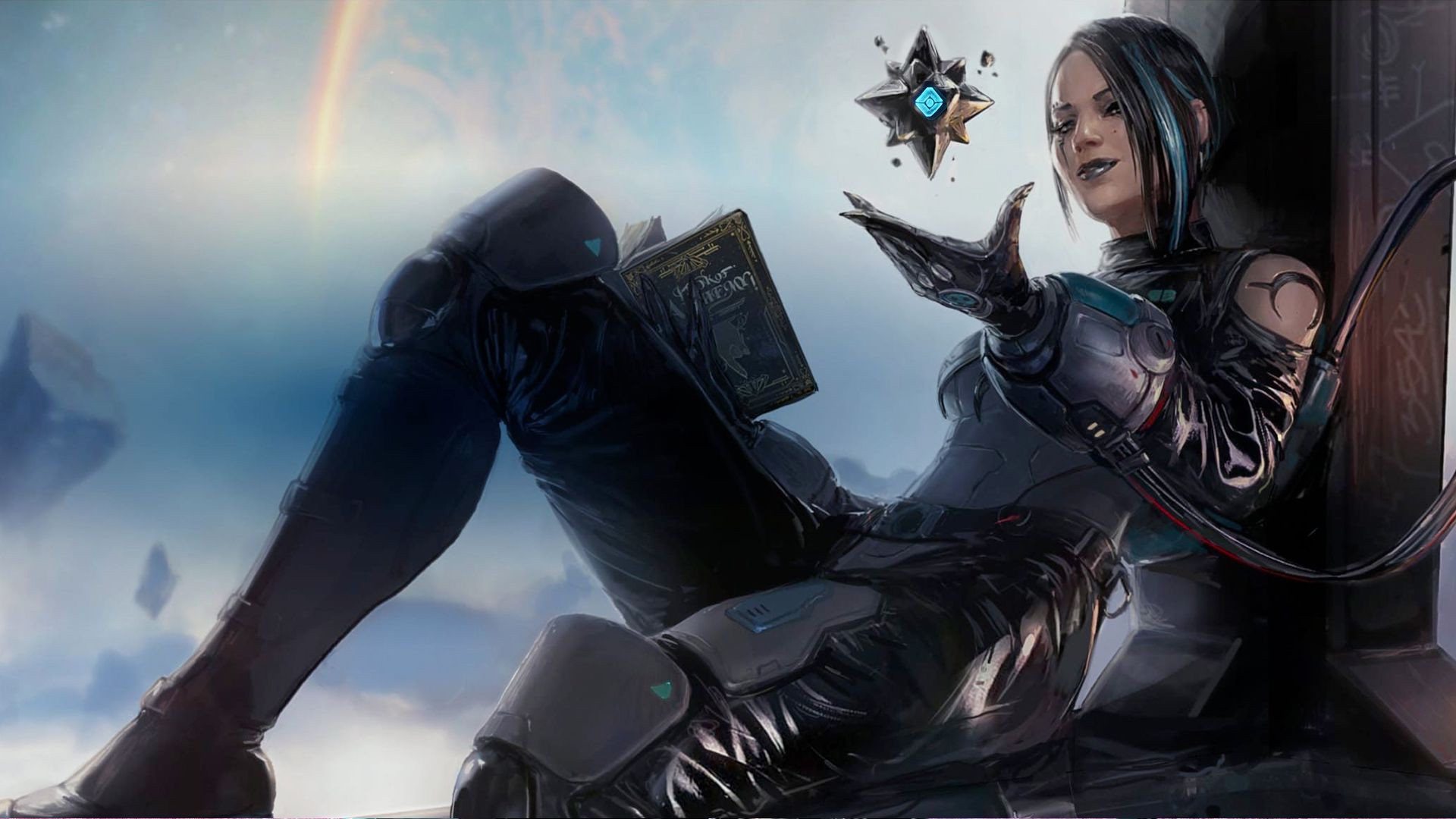
The Apex Legends team on making Catalyst "inescapably trans" and proud
The dynamic dialogue system sees characters have specific interactions with one another, which sometimes presents players with more explicit references to a character's gender identity or sexual preference. When it came to bringing Apex's first trans character to life, for example, the team worked closely with voice actor Meli Grant to ensure that when Catalyst, or other characters, addressed her transness, it was done in an authentic and considerate way.
"The process as a whole was wonderful, and collaborative throughout," Grant says of working with Respawn. "The team at Respawn checked in time and again to make sure I was happy with how things were coming out and specifically with those elements of Catalyst's story and quips that directly addressed her transness, that they were written in a way I was comfortable with, and felt were respectful and authentic."
The conversations characters have feel natural within the battle royale landscape, which also speaks to what makes the representation of LGBTQIA+ characters in Apex Legends so meaningful. Instead of being shoehorned in or added to check a box, a character's queerness is simply a part of who they are, just as my own queerness as a bisexual woman is a part of me. As Reed says, this is very much a reflection of the approach Respawn takes when it comes to designing characters.
Sign up to the GamesRadar+ Newsletter
Weekly digests, tales from the communities you love, and more
"When we design a character, their personality comes first. There is no singular queer experience – though there are some commonalities, queerness is a part of a person's identity rather than the whole," says Reed. "When we design a character, we take their personality and make that our North Star. We always look to their personality as we decide how different parts of their identity are expressed."
"Loba is very forward, for instance, so it makes sense for her to drop that she's into men and women casually (and a bit euphemistically) in conversation. That may mean a character represents one subgroup better than another and it can hurt to think you're not representing everyone entirely – but no single person can do that, anyway. That mindset helps us design characters that feel like nuanced and interesting individuals, rather than hodgepodges of unrelated ideas."
Representation matters
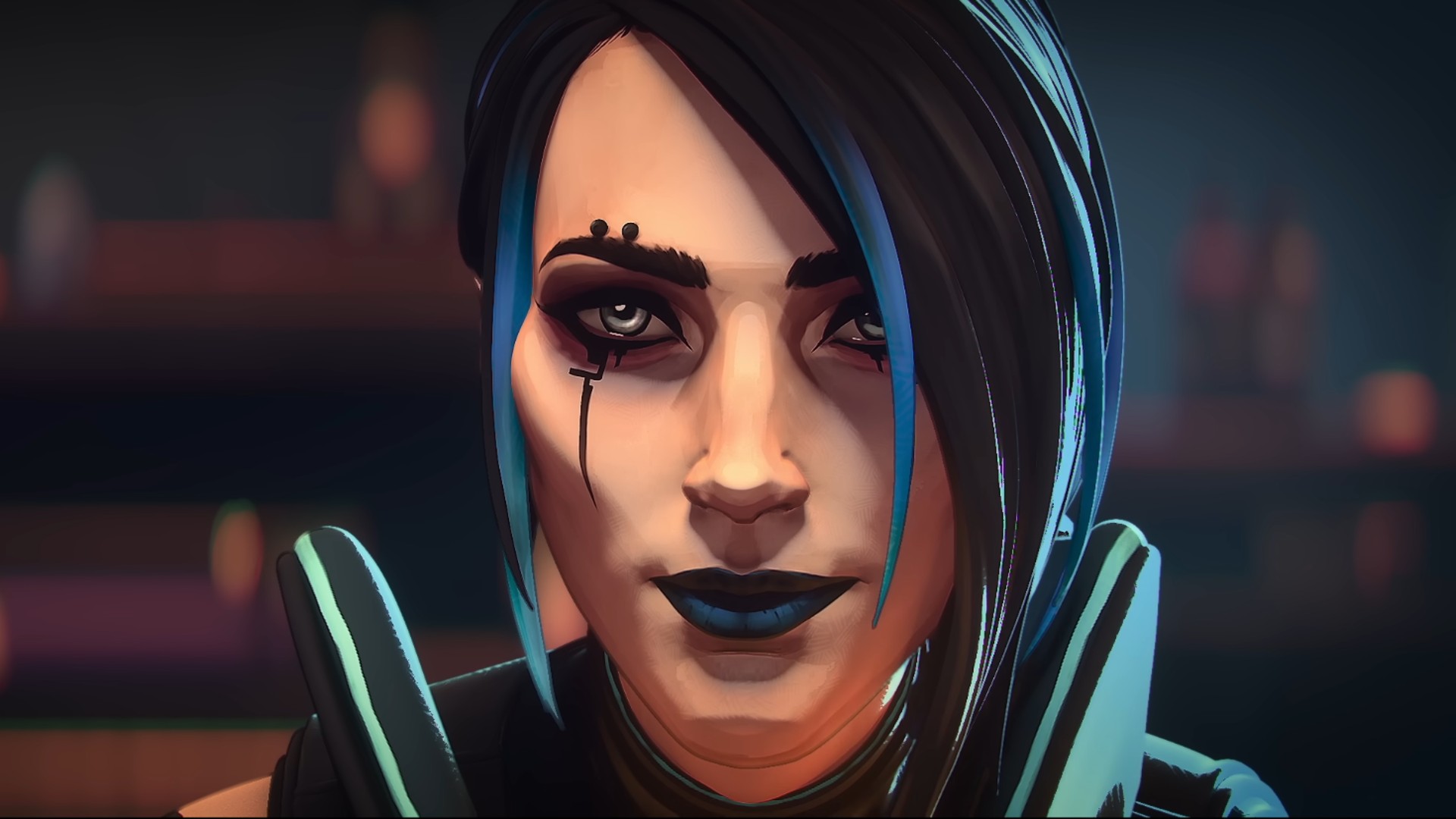
"I think it's awesome how games like Apex are pushing the needle forward and challenging the industry to keep up, and the fans celebrate it."
Meli Grant
Who voices a character is just as important as the approach to writing. For Grant, voicing a playable character in a major video game was a dream come true. Being as authentic as possible was immensely important when it came to the character of Catalyst, but as Grant highlights, it's important for any marginalized group that's being portrayed.
"Anyone can learn to act, and as actors we strive to explore lives outside of our own. It's thrilling. But when it comes to authentic representation, when you don't have that lived experience yourself, it rings hollow, and the fans can feel it, especially fans from those marginalized groups you're trying to pay homage to," Grant says. "But it's not just about accuracy. It's about creating opportunities for talent from marginalized communities to earn a living from the telling of their own stories. And it's about sending a message that there's a place for you too in this world."
"It's so important that people have an opportunity to see someone who is like them, not just on the pages of a storybook or in a game, but in the actual real world we live in, not just surviving but thriving. When we elevate and spotlight exceptional talent from marginalized communities, demonstrate that we're on the level – as actors, developers, writers, artists, world-class talent doing world-class work – we create a blueprint for whoever comes next, a hero they can look up to, someone who has accomplished an achievable goal that they too have every right to achieve if they put their heart and mind to it."
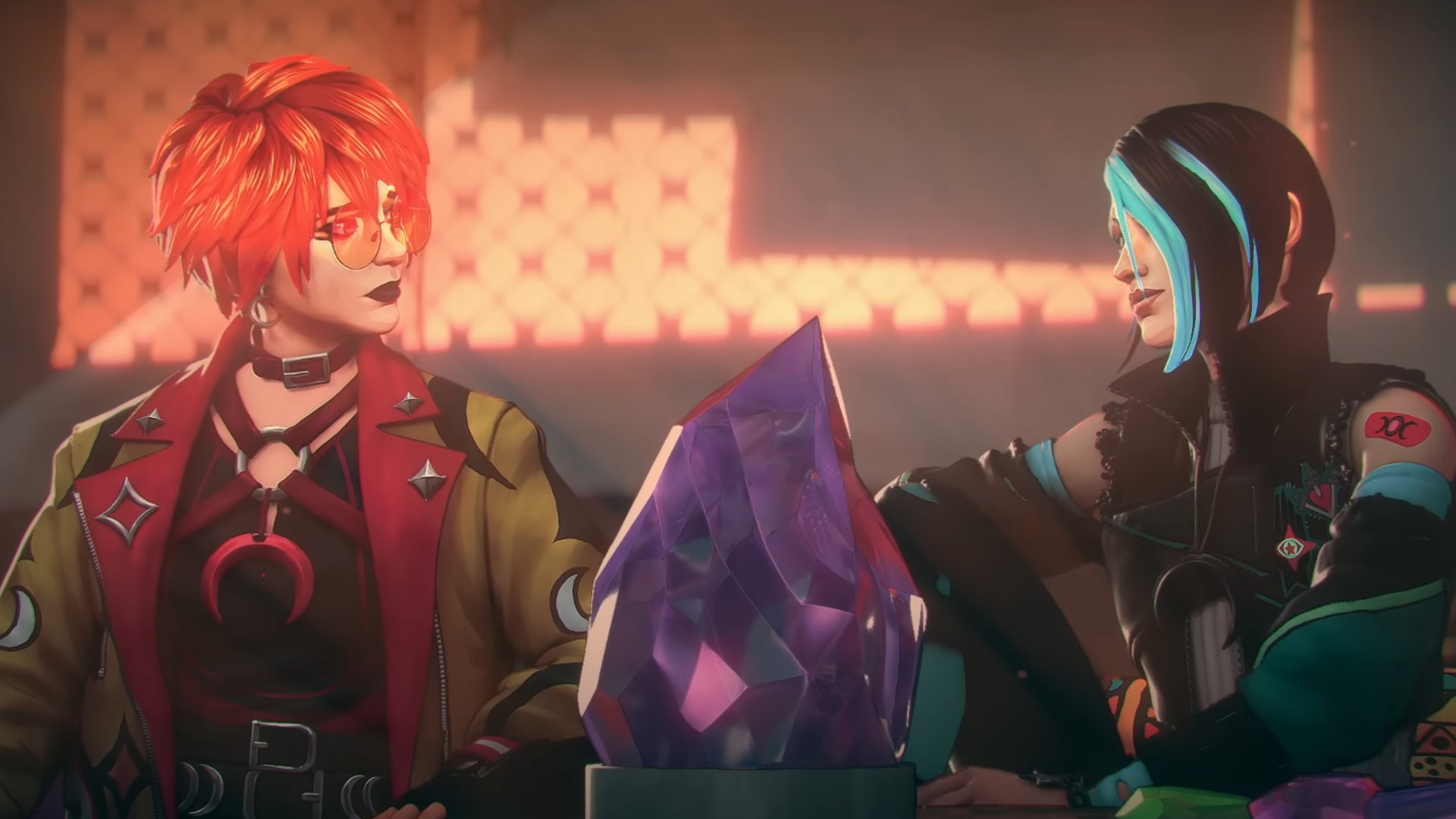
As Reed explains, Apex Legends takes place in the future of our own world, which is why the Outlands (as imperfect as it is) is meant to reflect the world we live in as well as its hopes for the future. It's why, as Reed says, "people should see themselves in the game" through its characters. When we see characters that reflect our own selves in games or any kind of medium for that matter, it can make us feel less alone, help us come to terms with our own identities, or give shape to our own feelings in the real world.
"Representation is so important. The stories we tell and the media we engage with should resemble the world we live in, plain and simple," Grant adds. "That doesn't mean we can't be riding dragons or combatting the forces of evil, but everyone deserves the chance to see someone like themselves drawing that sword from the stone and inspiring a kingdom, reminding them that their stories are worth telling too."
"I think it's awesome how games like Apex are pushing the needle forward and challenging the industry to keep up, and the fans celebrate it – with incredible artwork, theories, fanfiction, discussions, and of course by coming back season after season to play!"
Looking forward
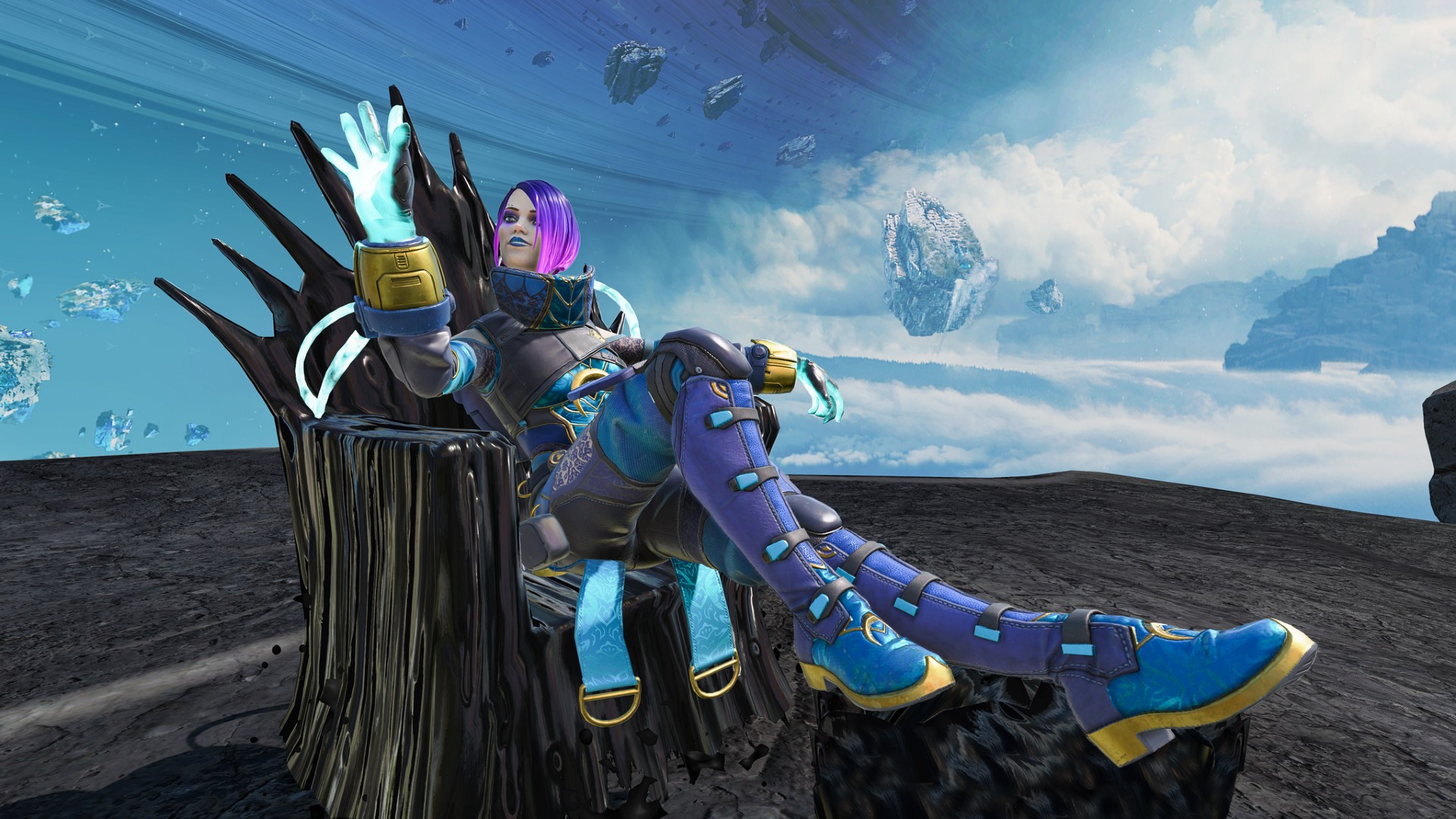
The importance of the authentic LGBTQIA+ representation found in Apex Legends is best demonstrated by the response to Catalyst after she joined the roster last year. As Grant tells me, she was initially nervous about the reaction to her performance and whether it would connect with the fanbase. But, as it turns out, the response couldn't have been more positive.
She says: "I've received hundreds of messages thanking me for being, well, me – telling me how much Catalyst means to them, how much her story resonates with them – in some cases how Catalyst helped them get in touch with their own feelings and find the courage to start exploring their own identities and relationships – messages from parents sharing how much they appreciate the positive representation and how she's been a 'catalyst' (pun intended?) for conversations with their kids about diversity and inclusion.,"
"Even messages from folks saying that Catalyst herself doesn't resemble them, but her story has enough common threads to their own that they can relate to her, even if she is a very different person – and I think all of that is really powerful. I feel so fortunate to be a part of this amazing cast and to have the opportunity to tell such an important story. And that Catalyst will continue to grow and change as her story unfolds! I'm so excited to see where things go from here."
Pride month may have come to an end, but authentic LGBTQIA+ representation in games is a subject that should always be on our minds – and celebrated when it's put at the forefront of a game's writing process. As Apex Legends goes on to grow and evolve as the seasons continue, for Reed, creating an inclusive cast is something that the team will always strive to develop and expand upon.
"We try not to rest on our laurels," says Reed. "There's no 'checklist' of identities that need to be included, but we like to consider what experiences may be missing from the cast – both for the benefit of the game, and for us as creators. Maybe there's a part of our identity we don't see in Apex yet or something that we don't have experience with but want to learn. Either way, creating an inclusive cast makes Apex more welcoming for more players and helps us grow as creators, so the result is a richer and deeper game."

I started out writing for the games section of a student-run website as an undergrad, and continued to write about games in my free time during retail and temp jobs for a number of years. Eventually, I earned an MA in magazine journalism at Cardiff University, and soon after got my first official role in the industry as a content editor for Stuff magazine. After writing about all things tech and games-related, I then did a brief stint as a freelancer before I landed my role as a staff writer here at GamesRadar+. Now I get to write features, previews, and reviews, and when I'm not doing that, you can usually find me lost in any one of the Dragon Age or Mass Effect games, tucking into another delightful indie, or drinking far too much tea for my own good.


